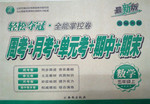【题目】 Being highly successful in any field is pretty rare. It takes a combination of natural talent, luck, determination, and plenty of outside support for someone to make it big in sports, entertainment, or business. But what if competing is all that matters to you, whether you are likely to succeed or not? This was the goal of Michael Eddie the Eagle Edwards, and that he reached that goal was an amazing achievement.
Born in the U.K. in 1963, Michael was an enthusiastic downhill skier whose dream was to compete for Britain in world-class competitions. He would have liked to represent his country in the 1984 Winter Olympics, but there were a large number of downhill competitors, and Edwards didn't qualify. Seeing his chance elsewhere, he switched to ski jumping. Ski jumping didn't cost nearly as much, and there was almost no competition for a place on the Britain team.
But number of hurdles (障碍)could have meant the end of Edwards' dream. He weighed more than most competitors, which put him at a disadvantage. He had no financial support for his training. Poor eyesight meant that he had to wear glasses under his goggles (护目镜)- not a good thing when they steamed up at high altitudes. But he couldn't let any of this discourage him. He saw himself as a true lover of the sport who simply wanted the chance to compete. Winning wasn't the point. Having the opportunity to try was all he cared about. And nothing could stop him from trying.
In the end, Edwards took 55th place in the 1987 World Championships. He then went on to the Calgary Olympics in 1988, where he finished last in both of his events. Many athletes would have been embarrassed by this result, but he is proud of his achievement to this day. His determination to fight against all the odds made him a global hero, and in 2016, the inspiring film Eddie the Eagle was made about his life.
【1】What is the purpose of the first paragraph?
A. To add some background information.
B. To uncover the secret of success.
C. To expect an answer from readers.
D. To introduce the topic.
【2】Why did Michael Edwards choose ski jumping?
A. It took less skill.
B. The equipment was cheaper.
C. There was little competition.
D. It was easy to win the championship.
【3】After the Calgary Olympics, Edwards _________.
A. felt he had reached his goal
B. was embarrassed by his results
C. switched to film making
D. was glad it was over
【4】What made Michael Edwards outstanding?
A. His determination to win.
B. His enthusiasm for the sport.
C. His attitude towards the Olympics.
D. His ability to overcome physical disabilities.

 轻松夺冠全能掌控卷系列答案
轻松夺冠全能掌控卷系列答案